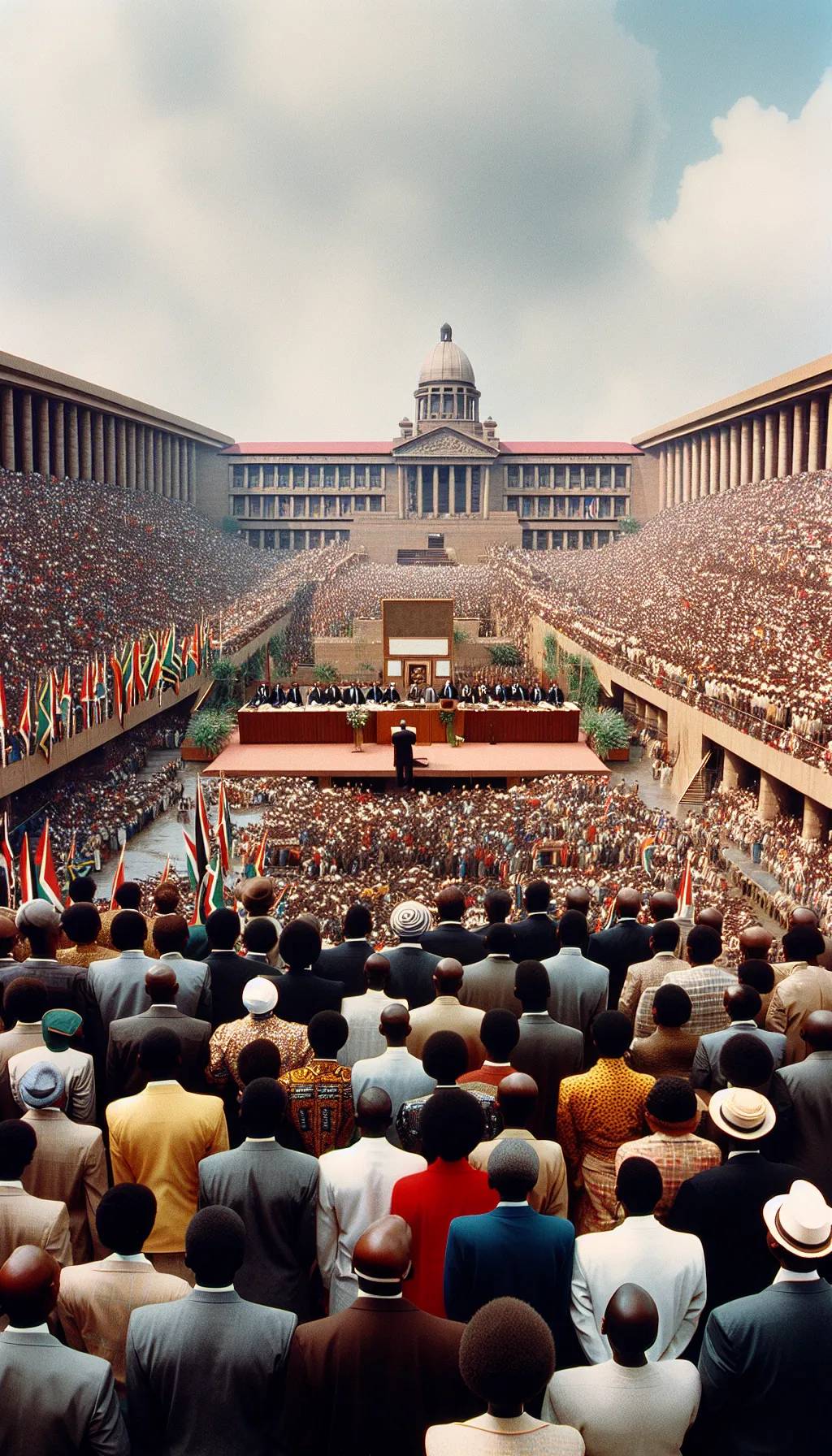South Africa – A New Dawn: Nelson Mandela's Inauguration at the Union Buildings - 1994
TLDR;
- Event: Nelson Mandela was inaugurated as South Africa’s first democratically elected Black president on May 10, 1994, at the Union Buildings in Pretoria, marking the end of apartheid.
- Struggle: Mandela’s journey included 27 years in prison under apartheid, with his release and subsequent negotiations leading to democratic elections.
- Significance: The inauguration symbolized a new era of democracy, equality, and reconciliation in South Africa, with Mandela emphasizing unity and forgiveness in his speech.
- Legacy: Mandela’s presidency and his vision for a united South Africa became a global symbol of hope and the power of peaceful transition from oppression to democracy.
–
Story
The air was electric with anticipation on May 10th, 1994, as the world watched South Africa take a monumental step forward. At the Union Buildings in Pretoria, a city once synonymous with apartheid’s oppressive regime, a new chapter was being written. Nelson Mandela, a man who had spent 27 years behind bars—some under the harshest conditions of apartheid and later under slightly improved circumstances due to international pressure—for his fight against racial segregation, was about to be sworn in as the first democratically elected Black president of South Africa, in a fully representative democratic election.

The journey to this day had been long and fraught with struggle. For decades, South Africa had been a nation divided by the harsh realities of apartheid, a system that institutionalized racial discrimination and disenfranchised the majority of its population. But the winds of change had been blowing, aided by international sanctions and diplomatic pressure from the UN, the ANC’s allies, and anti-apartheid movements worldwide, forcing the apartheid government to negotiate. Mandela, with his unwavering resolve and vision for a united South Africa, had become the symbol of hope and reconciliation.
As Mandela took the oath of office, the significance of the moment was palpable. It was not just a victory for him, but for millions who had fought, suffered, and dreamed of a free and equal society. The inauguration was a turning point, signaling the end of an era of oppression and the dawn of a new age of democracy and equality.
Mandela’s speech resonated with themes of forgiveness and unity, urging South Africans to come together to build a nation that would be a beacon of hope for the world. ‘Never, never and never again shall it be that this beautiful land will again experience the oppression of one by another,’ he declared, his words echoing through the hearts of those present and millions more watching around the globe. The full speech included additional emphasis on reconciliation and nation-building.
The road ahead was not without challenges, but Mandela’s inauguration was a powerful reminder of the resilience of the human spirit and the possibility of change. It was a day that marked the triumph of justice over injustice, and hope over despair.
–
| Would a different leader have changed the course of South Africa’s history? |